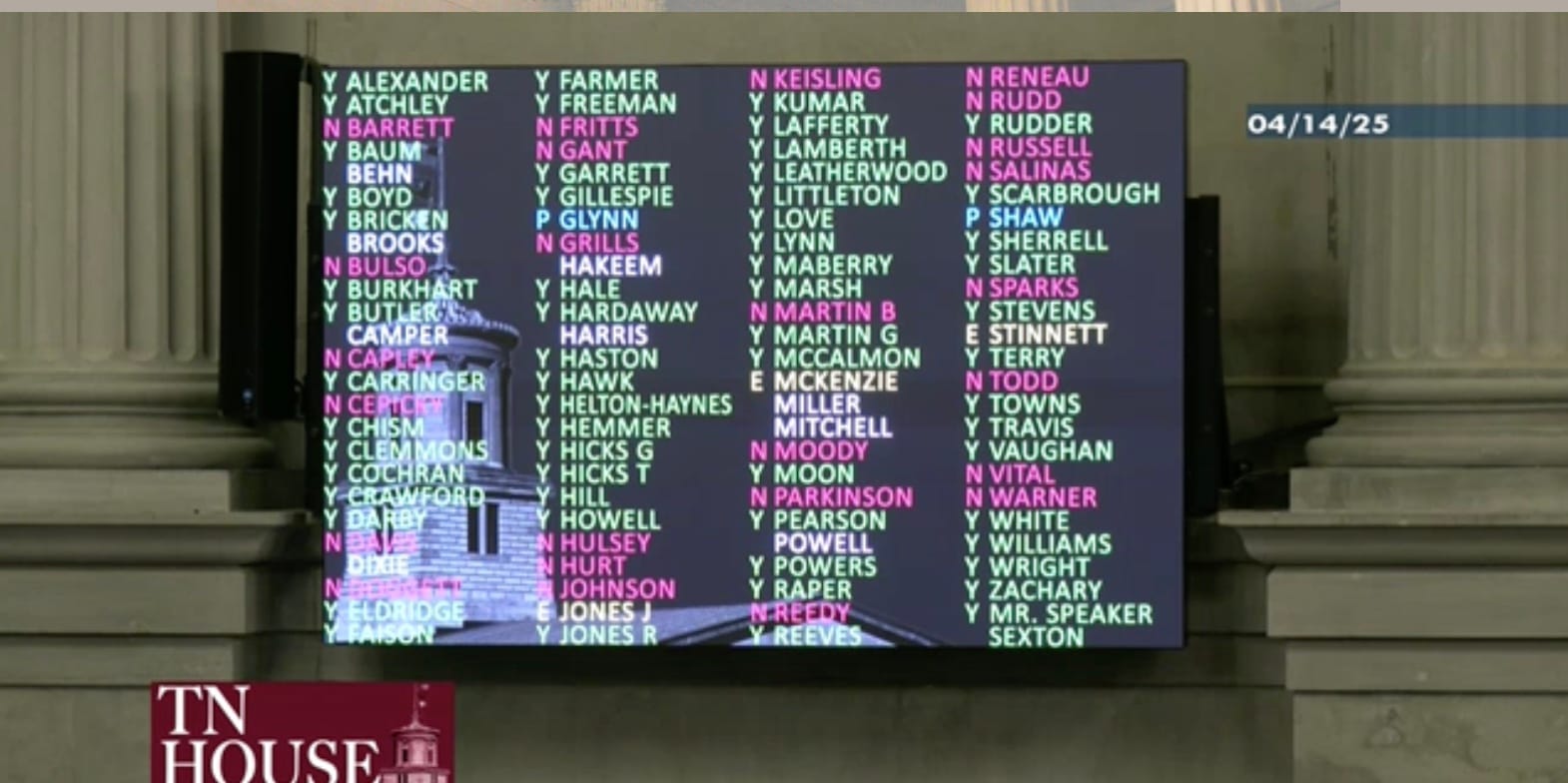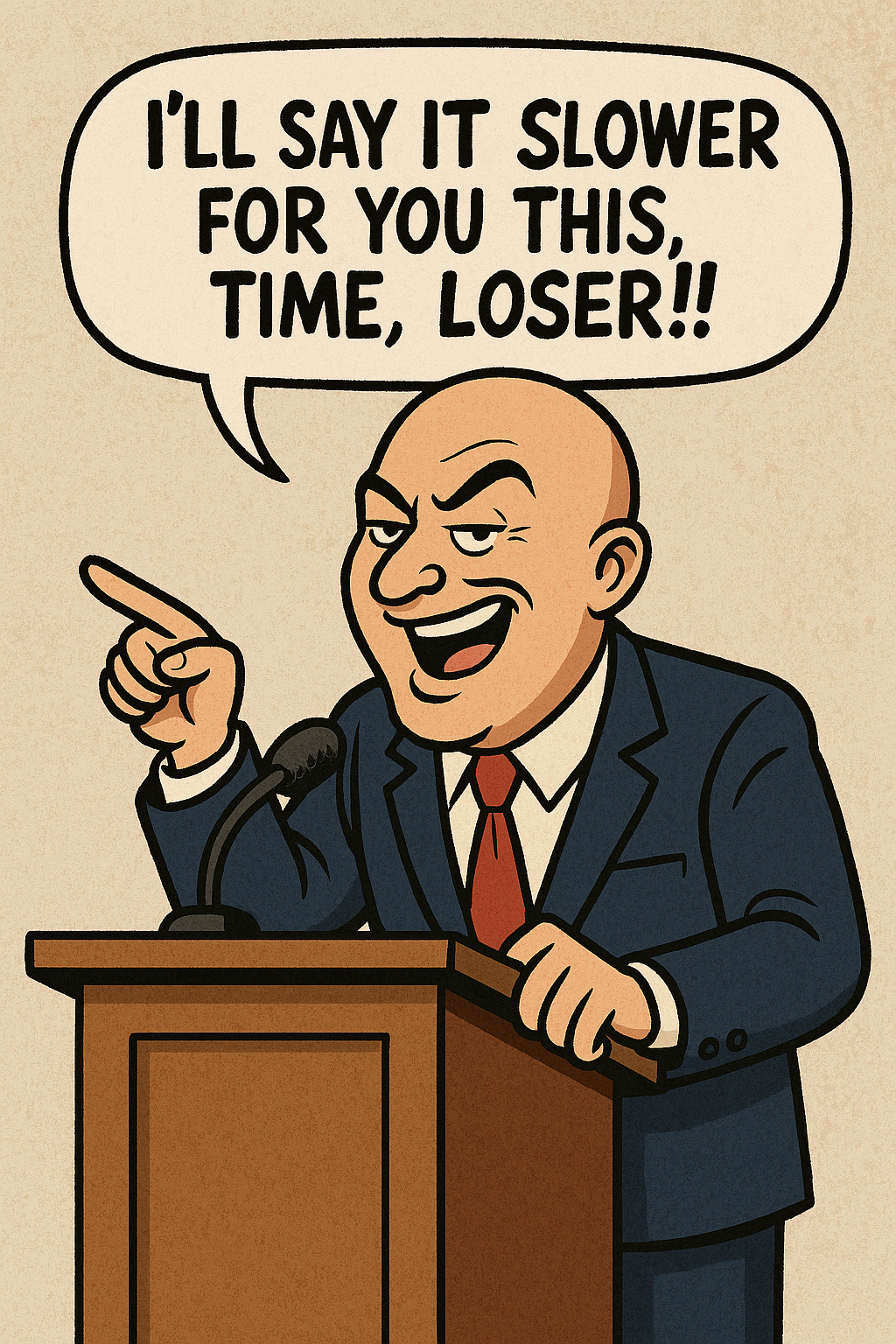A controversial bill to eliminate local GOP caucuses passed the Tennessee House, despite warnings from Rep. Gino Bulso about its unconstitutionality. Rep. Lee Reeves’ smug “I’ll say it slower” remark drew audible backlash in a vote seen as politically coerced.
By TruthWire News | April 14, 2025
The Tennessee House of Representatives advanced HB0855/SB0799 on Monday, a bill that would prohibit local Republican parties from using caucuses or conventions to nominate candidates for partisan county-level offices. The vote came after tense exchanges on the floor and mounting concerns that the legislation is both unconstitutional and politically motivated.
Though HB0855 passed with 60 votes in favor and 25 against, it did so under the shadow of growing grassroots opposition, an official rebuke from the Tennessee Republican Party’s State Executive Committee, and heated debate that highlighted just how fractured the Republican caucus has become on the issue.

Rep. Gino Bulso: “This Bill Is Unconstitutional”
Rep. Gino Bulso (R–Williamson County) mounted the most substantive legal argument against the bill, warning colleagues that it violates the First Amendment right of political association.
Bulso cited recent federal precedent—Idaho Republican Party v. Ysursa—where a federal court struck down a similar state-imposed primary requirement. The court found that Idaho’s open primary law, which allowed Democrats and independents to vote in the GOP’s nominating contests, infringed on the Republican Party’s right to exclude non-members.
Tennessee, Bulso noted, faces the same legal vulnerability. He pointed to Williamson County’s March 2024 primary, where more than 10% of voters were Democrats—an intrusion that has real consequences.
“We had a county commission seat flipped in 2022 by just 11 votes,” Bulso said. “And we had more than 2,500 Democrats vote in that primary. This is not hypothetical. This is happening.”
He concluded firmly: “Primaries, yes. Open primaries, no.”
Rep. Scott Cepicky (R–Maury County) questioned Rep. Lee Reeves, the bill’s sponsor, about who would bear the cost of the mandated primaries. Reeves initially gave a murky answer, claiming the state reimburses counties for presidential primaries but deflecting on the cost burden for off-cycle local ones.
When Cepicky pressed him again to clarify who pays for non-presidential year county primaries, Reeves condescendingly replied, “I’ll say it slower this time.” The remark was met with audible disapproval from the chamber—a moment that visibly shifted the tone in the room.
While Reeves ultimately admitted that county taxpayers would foot the bill, he dismissed concerns about local budgets, even though HB0855 eliminates caucuses as a fallback option when funding a primary isn’t feasible.
Rep. Monty Fritts (R–Roane County) confronted Reeves on the Tennessee Republican Party’s overwhelming opposition to the bill. The GOP State Executive Committee had just passed a resolution condemning HB0855 as unconstitutional and an infringement on local party autonomy.
When asked if that opposition gave him any pause, Reeves doubled down: “I’ll stand with the voters over party insiders.”
But Reeves’ answer revealed a deeper contradiction—he is a Republican dismissing his own party’s governing body, one elected by grassroots Republicans across the state, as mere “insiders.” That response only deepened concerns that the bill was being pushed not for the good of the party or voters, but to settle political scores.
Rep. Greg Martin (R–Hamilton County) once again reached for his go-to analogy about being disenfranchised because he wouldn’t have been able to vote under early American land ownership laws. The argument, which he also made in committee, was confusing and historically irrelevant to the matter at hand—modern party nominating processes.
Critics noted the irony: Martin is the same legislator who sponsored a bill in 2023 to allow SROs to handcuff special needs students—hardly a champion of constitutional nuance. His repeated invocation of 18th-century land rights left many wondering if he truly grasped the constitutional implications raised by his colleagues.
Perhaps most telling was the mood in the chamber. While floor debate featured passionate opposition, there was little vocal enthusiasm for the bill outside of Reeves’ presentation. The vote felt more obligatory than principled, with many members seemingly backing the bill out of loyalty to Senate Majority Leader Jack Johnson—its Senate sponsor—and Speaker Cameron Sexton, who co-sponsored the House version.
Even as Reeves claimed to stand with the voters, his bill directly contradicts the will of the party’s grassroots leaders and undermines local autonomy. It also leaves rural counties with no option but to pay for costly, two-week-long primaries—or abandon partisan races entirely.
Now that HB0855 has cleared the House, it returns to the Senate for final action. But the pushback is far from over. The Tennessee Republican Party has vowed to fight what it considers a violation of its First and Fourteenth Amendment rights, and possible lawsuits could realistically be on the horizon from across the state.
The final vote may have been tallied, but the battle over HB0855—and who controls the future of Tennessee’s Republican Party—is just beginning.
If you support what I do, please consider donating a gift in order to sustain free, independent, and TRULY CONSERVATIVE media that is focused on Middle Tennessee and BEYOND!



Comments ()